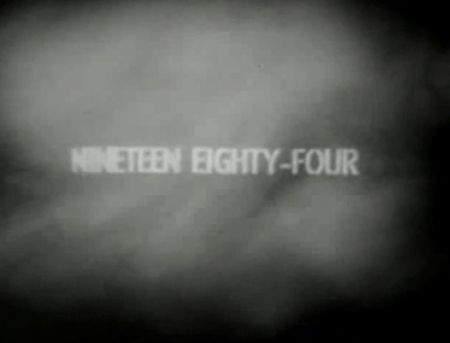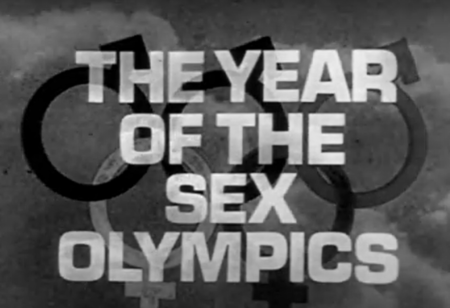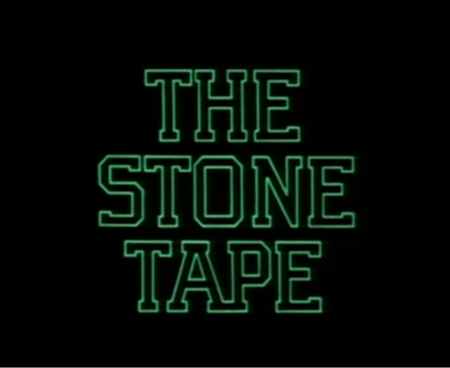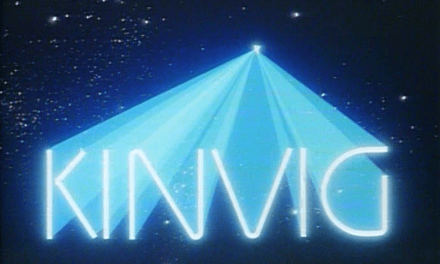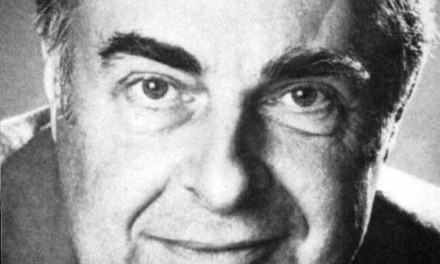As a writer, does Nigel prefer creative writing to the demanding task of adapting the works of others? “Obviously it’s much more interesting writing your own stuff. Sometimes, as in Nineteen Eighty-Four, there’s a technical challenge that one can enjoy – not as much, but considerably – and when we did Nineteen Eighty-Four in 1954 it was a huge technical challenge: simply to get a live show lasting for two hours into the studio with the enormous complication that it had for its time. There’d been nothing quite like it.”
Whilst the 1954 production starring Yvonne Mitchell and Peter Cushing is a well-known television classic, comparatively overlooked is the Theatre 625 remake in 1965. “I don’t know how it came about,” says Nigel. “Somebody thought that a few years had gone by and they would try again to see if it had the same sensational effect as the first one. It didn’t. The script was almost exactly the same, except I think for the extreme opening, and we had certain additional benefits, but not a lot. The music for the original version was written by John Hotchkis and he conducted it himself with an orchestra in the second studio. The synchronisation, which was done live, had to be very, very finely timed. In the second production, the 1965 version, there was also an orchestra with specially written music by Wilfred Josephs. He conducted it, but I think it had been pre-recorded. I don’t think we had the same awful problem of synchronisation. It was a skilful version, but for me the acting was much less good.
“The performance that I did like as an interesting variation was Joseph O’Conor as O’Brien, the Inner Party chief. In the original version, André Morell had played that part in a very alarming, authoritative, powerful performance. O’Conor played it in a different but equally effective way as a very religious man turned inside-out, which is a subtle observation on the kind of fanatic that O’Brien would have been. I think both performances were quite excellent, and hugely interesting because they were so different. There was of course no great reaction, and I’d put that down partly to some of the performances – which were pretty dull – and also because the audience was much less suprisable and shockable. In 1954, it was a fairly new phenomenon – television. In 1965, it wasn’t. You had two channels and a much, much bigger audience and they simply got used to the whole thing.”
Another Fifties production by Nigel was The Creature (1955), later filmed by Hammer as The Abominable Snowman (1957). With the original play gone, how did it differ from the existing cinema version? “Not a great deal, just the sort of ‘opening up’ one would get in a film. I remember I added characters. Peter Cushing, who played the same part in both, was given a wife, Maureen Connell, and an assistant, Richard Wattis. Of course, the sets were much more elaborate. Hammer Films made an extremely effective monastery set down at Bray Studios. In fact, it was so expensive and so good I think it was adapted to all sorts of subsequent uses, like Dr Fu Manchu’s palace and so on. The baddie of the story was played in the television version by Stanley Baker. In the film version we had Forrest Tucker, and I suppose there was again a character difference. Baker played it as a subtle, mean person, Forrest Tucker as a more extrovert bully, but they were both good performances and I found very little to choose. Tucker was, I think, an under-rated and very good actor.”
Nigel has mentioned that he was asked to write for Doctor Who at its conception, but refused, not liking the idea. “That’s quite true. It sounded a terrible idea and I still think it was. The fact that it’s lasted a long time and has a steady audience doesn’t mean much. So has [the ATV soap opera] Crossroads (1964-1988, 2001-2003) and that’s a stinker. I was approached by Sydney Newman, who was then running BBC drama, and it was his idea. It struck me as a producer’s idea and not a writer’s idea, and I think there’s a difference. I think what offended me about it was that it was clearly to be put out as a Children’s Hour story, and I didn’t write Children’s Hour stories. It was to go out at five or six o’clock and the tinies could watch – and I felt I’d find that very inhibiting because I didn’t want to bomb tinies with insinuations of doom and terror. In fact, that’s what they got to doing. And the tinies were bombed and I found this horrible. I had small children of my own at the time and I found Doctor Who thoroughly offensive in that respect. And you get people saying, ‘Oh yes, I was frightened. I hid behind the armchair when I saw the so-and-sos…’. That does not make it right to implant nightmares in the minds of little children. I think it is a bad thing to do, and I wouldn’t do it.
“I was approached to write [for the BBC1 science drama] Doomwatch (1970-1972). That didn’t seem to be much good either. So I didn’t. It seemed to have a sort of over-formatted shape and I couldn’t see myself fitting into that sort of thing at all.”
From 1963 to 1972, Nigel also provided the BBC with a set of memorable plays. How had these come about? “Mostly they were original ideas that I’d had and took to the BBC, things like The Road (1963), The Year of the Sex Olympics (1968) – I mean that isn’t a producer’s idea! You wouldn’t get a producer capable of thinking of that one in a million years – Wine of India (1970) and The Stone Tape (1972). The Stone Tape was the only one where I was approached directly for a Christmas story, a yarn. Christopher Morahan who’d been newly appointed to be Head of Drama, asked me about some six months ahead to write a Christmas play, and I did. I said, ‘Well, it should be a ghost story. Let’s do it with a difference. Let’s mix ghosts and high technology’ – and that came out as The Stone Tape.
“The collection of three of the plays (The Road, The Year of the Sex Olympics, The Stone Tape) into a little book was done rather lovingly by a South London bookseller. His name is George Locke and he had been getting enquiries for scripts – because booksellers of an investigative nature like himself dig out all sorts of fantasy material – and he thought he’d like to stick three of them together and publish them himself. His bookshop is known as Ferret Fantasy.”
Had Orwell’s ‘newspeak’ in Nineteen Eighty-Four influenced the even more-corrupted form of English used in The Year of the Sex Olympics? “Not directly, no. I mean there’s no connection. People in Nineteen Eighty-Four speak more-or-less in the manner Orwell had designed for them in his book, and I was following the book. When I came to do The Year of the Sex Olympics, it was pitched much further in the future and I was working out how they might realistically talk then. I thought that there’d been a much greater change and the story I was telling was about a much more mentally impoverished civilisation, if you can call it a civilisation. Different. Worse in its ways although more comfortable than Nineteen Eighty-Four. A completely feather-bedded population being steadily reduced by being exposed to non-stop pornography so that they’re discouraged right out of sex. But they have a very nice time, the weather is controlled, they live completely in ideal conditions and everything is provided for them. They don’t have to do any work; they’re just being kept afloat as a huge gene pool. And I thought people in those conditions would have very, very, reduced language – they wouldn’t be really a verbal society any more, and I think we’re heading towards that. Television is mainly responsible for it, the fact that people are now conditioned to image. The pictures they see on television screens more and more dominate their thinking, as far as people do a lot of thinking, and if you had a verbally reduced society, you would get the kind of language – possibly – that you did get in the play. Interestingly we had a studio discussion afterwards [in BBC2’s Late Night Line-Up (1964-1972)], and one of the participants was Anthony Burgess who had just had his A Clockwork Orange (1962) filmed [in 1971], and we were talking at some length about the change or perversion of language. By different routes, we’d got to rather the same conclusion.”
The play the least is known about of this quartet is Wine of India. “I called it that because there is no such stuff. They don’t make wine in India except a very small quantity in a very limited district. I wanted a title that suggested something that didn’t exist, because this was again about a future society where all problems are overcome, but this time it had gone yet another route. It was written at a time when heart transplants and kidney transplants were coming in in a big way, and I wondered: Supposing you had people sustained by highly perfected medical means at the peak of youthfulness for up to a century. Then you’d have to get rid of them. Kill them off. To make it civilised what you have in this society is a contract. You’re guaranteed until the age of 90, or 95, or 100, and at the end of that time, you have to go. During that time you will have perfect health and vigour, right up to the last minute. So, this play was the story of a funeral in which all the relatives assemble; the children and grand-children and of course great-grandchildren, because generations are longer, the only difference being that the couple who are to go are still alive and kicking. At the end of it, they go. They walk out through the curtains in the same way that a coffin disappears in a crematorium. They know this is the deal, and they accept it.
“The atmosphere of the play is rather one of a party. Of course, there is very little apparent difference in their ages. The old look remarkably young, and the young have caught up with them – the generations are crushing on one another. People assemble for this ceremonial production – and it is a production. There’s even a producer who is the equivalent of a present-day undertaker. He has to put on the show and keen everybody calm. Nobody has to panic or get too close to reality on this occasion. It might get painful. In fact, the thing that breaks the spell in my play was that somebody turns up: a genuinely old lady, a contemporary of the youthful couple who are about to terminate, and this old lady is somebody who has refused to join the system and sign the pledge. She looks her years. She is in her eighties, and wrinkled and ancient looking. And this seems very alarming and frightening and upsetting to all those present. In fact, it’s a clever bit of production by the mortician/producer because he’s afraid that on this particular occasion, one of the couple is not going to be able to go through with it, and so he has sprung a surprise on them: the production of this person whom they knew many, many years ago – and her sheer ancientness provokes them into a feeling that they’ve been lucky and to accept the deal and go through with it. That seems better than having got old, which they have never been. They look as young now as they did when they were 30. although they’re about 90. And the crisis over, the guests disperse with their heirlooms or little things they’ve come to remember the departed by, and it’s the end of the production and they toast them. And the toast is drunk in Wine of India.”
With the recent screening of The Stone Tape by the BFI, did Nigel feel this play still stood up well, fourteen years later? “I was very pleased to see it at the [National Film Theatre, now the BFI Southbank] the other day, particularly as it stood up very well. It was a good production – entirely on tape including outdoor material – directed by Peter Sasdy, and I thought it looked pretty good. Extremely well-acted by a distinguished cast, and that’s always a very pleasing thing for the author, so I was quite happy about it.”


